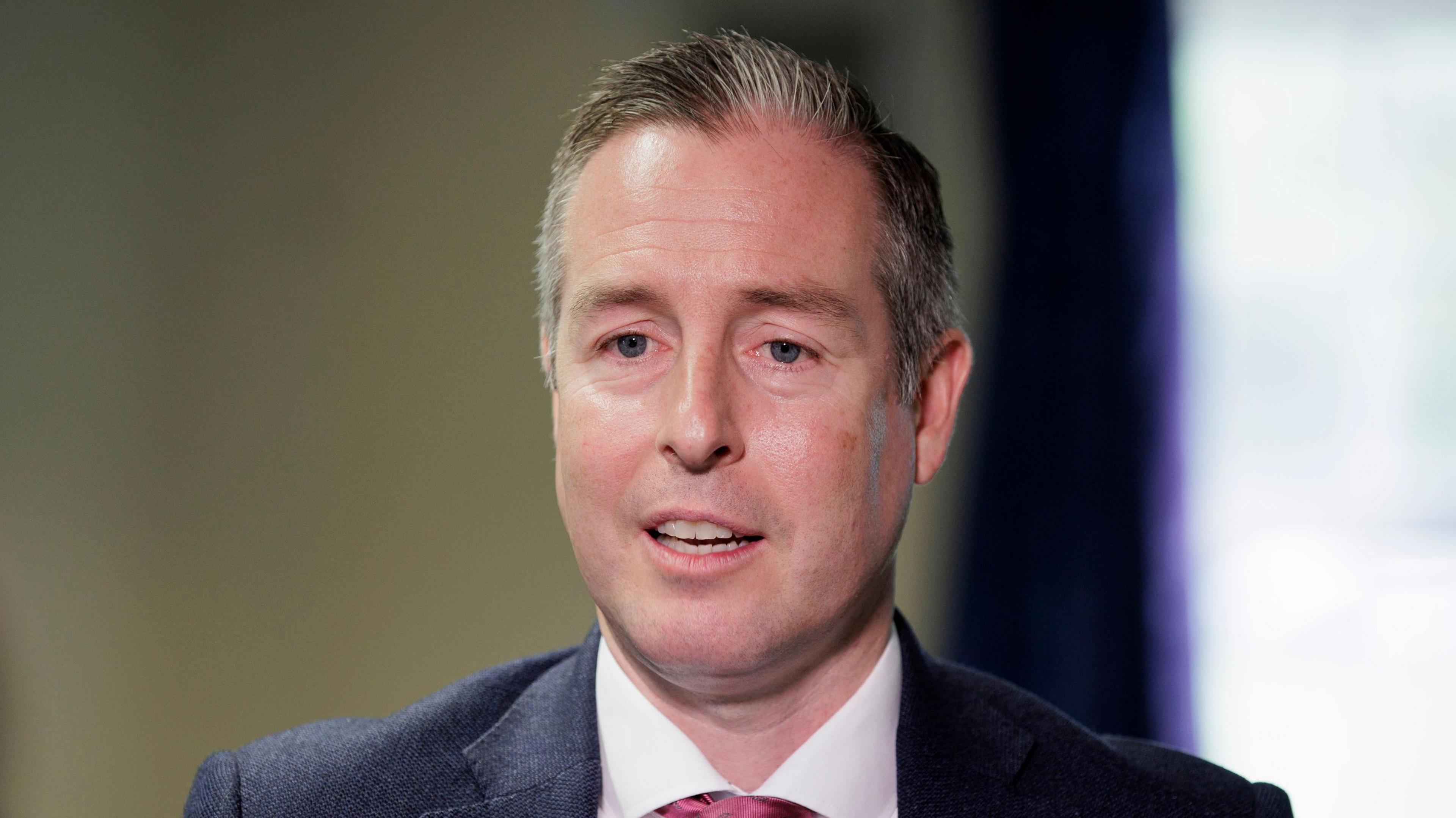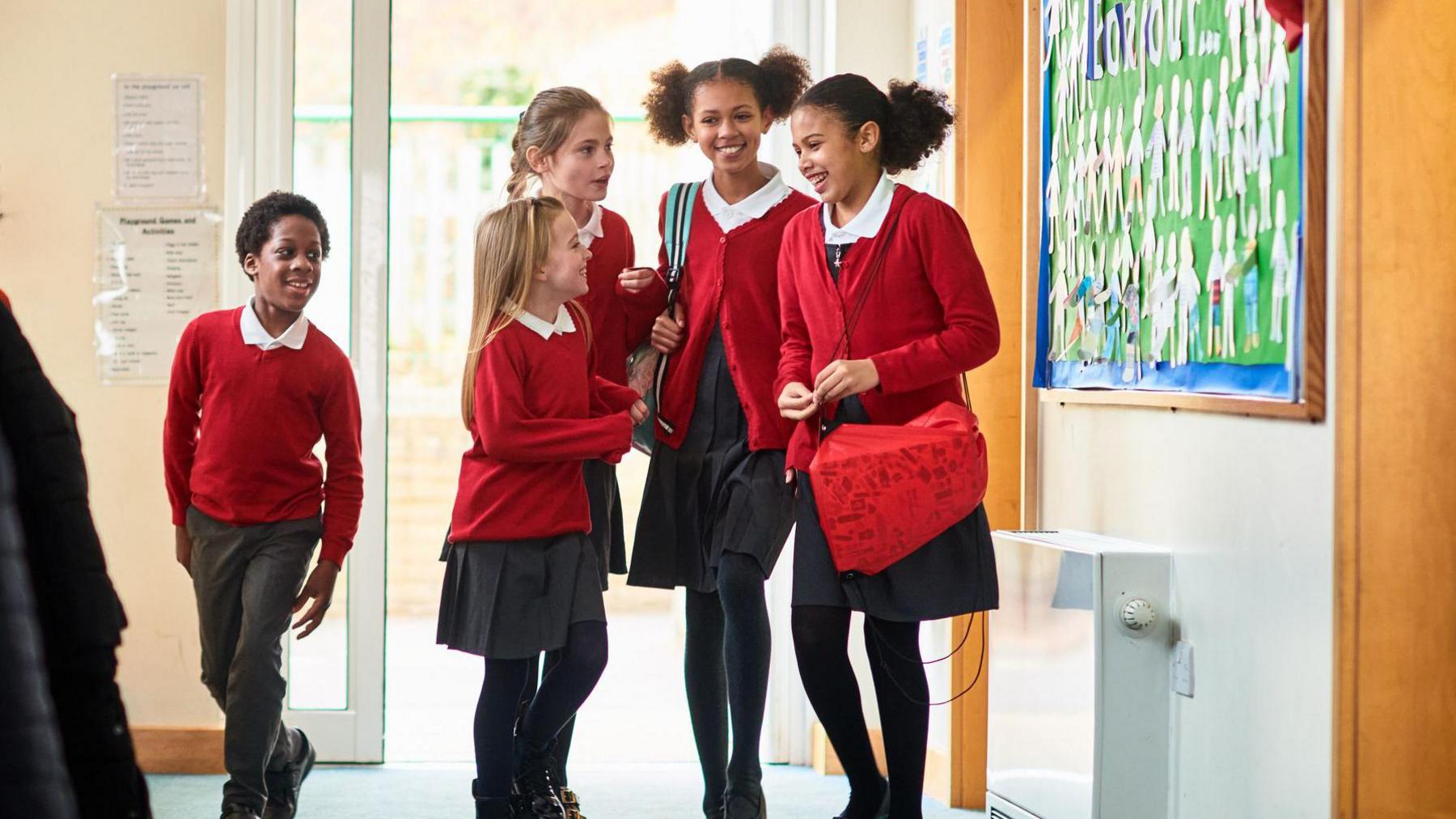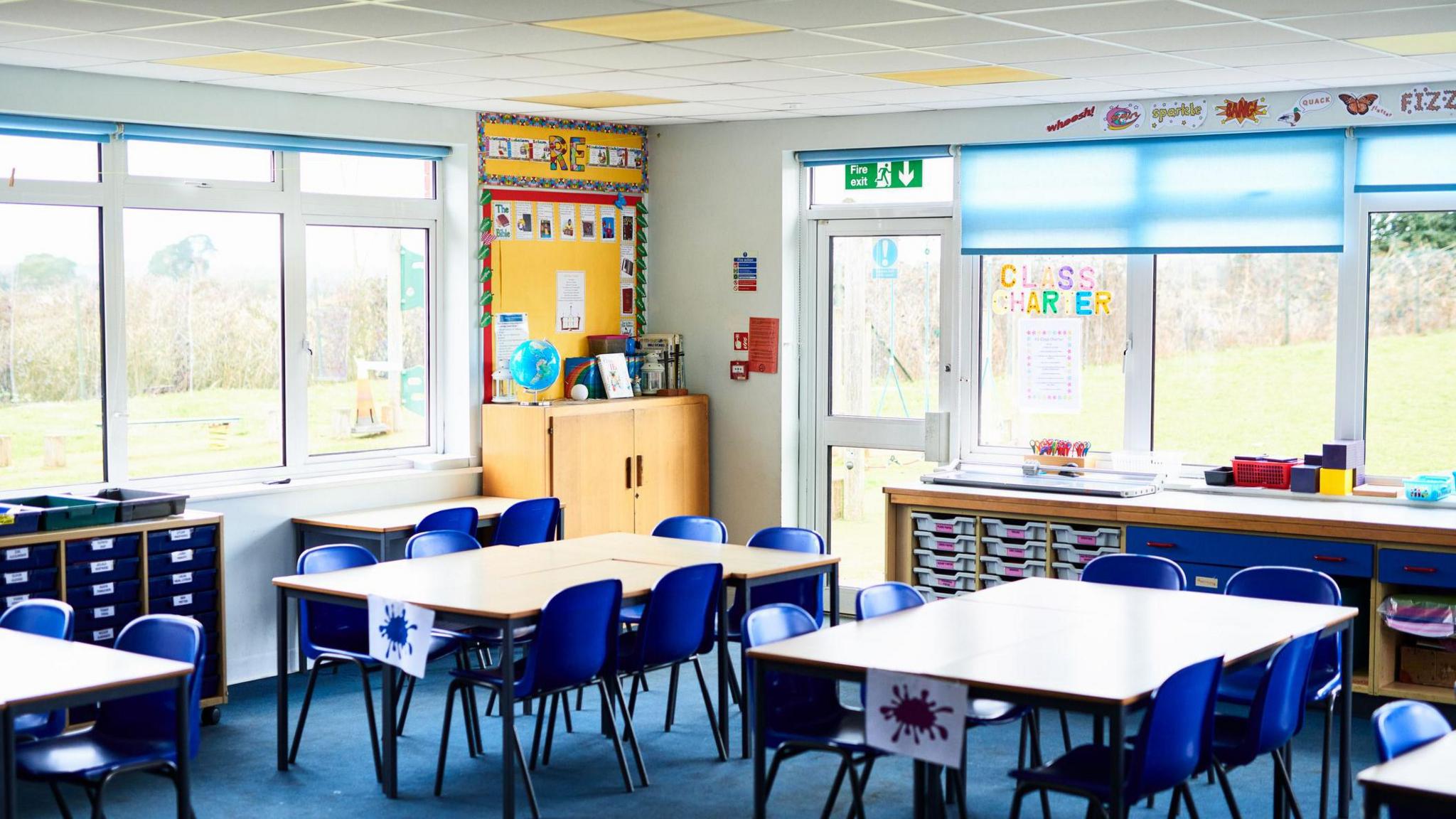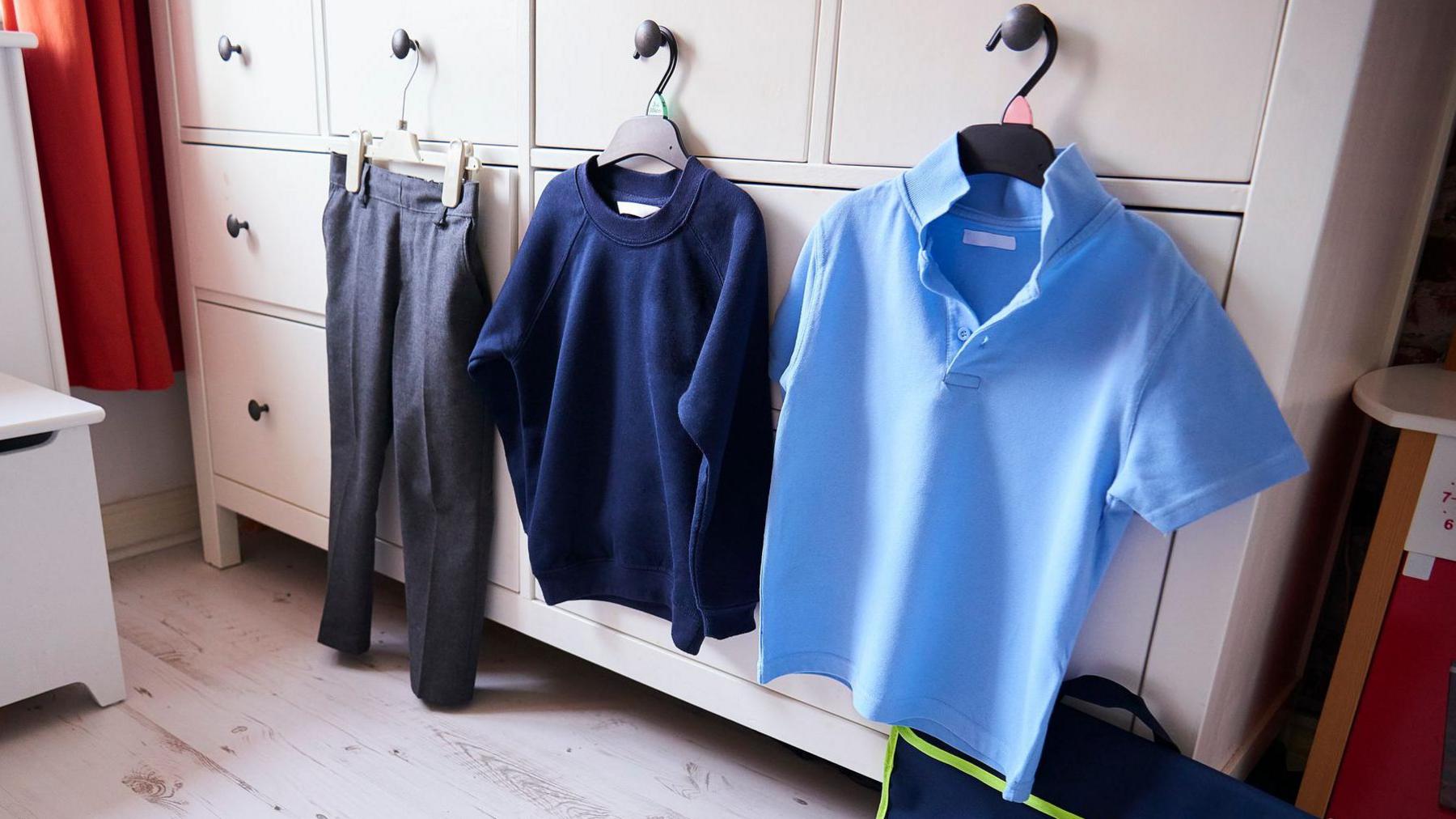Girls have 'legal right to challenge schools to wear trousers'

- Published
Girls have the legal authority to challenge their schools to let them wear trousers instead of skirts, the education minister has said.
Paul Givan told MLAs on Stormont's education committee that his own daughters wore skirts to school.
But Sinn Féin MLA Cathy Mason said the minister had not stood up for girls' right to wear trousers, adding: "Why won't you stand up for young girls and allow them to wear trousers to school?"
Givan said: "I absolutely am standing up for young girls and if they want to wear trousers for school they actually now have more legal authority to make the case."
New laws on school uniform

Paul Givan said his own daughters wore skirts to school
Givan said that new laws on school uniform meant that schools "legally have to ensure that they listen to their pupils voice".
"I've three daughters," Givan said: "They are all at school wearing skirts."
But Mason said that girls had not been given the right to wear trousers by the new law.
"Say they're going through a very heavy period, they risk the embarrassment of having a leak, they could have their stomach bloated to twice its size, they could be miserable," she said.
"The fact that they could wear trousers could make life much better for them.
"You had the power to make sure that they would be able to do that, but you chose not to do it."
Givan said that he did not have that power, but would encourage girls to challenge their schools.
"I absolutely encourage those girls in schools to challenge their schools and as a result of this legislation their voice has now got much greater weight to make the case," he said.

Givan said that new laws on school uniform meant that schools 'legally have to ensure that they listen to their pupils voice'
Meanwhile, a school principal told MLAs that schools in working-class communities are mainly responsible for supporting pupils with Special Educational Needs (SEN).
Chris Donnelly is the principal of St John the Baptist Primary School in west Belfast which has about 400 pupils, including 90 pupils with SEN.
He told MLAs that responsibility for children with SEN was mainly concentrated in non-grammar schools.
"A significantly greater volume in percentage of children with statements will attend non-grammar schools than their grammar counterparts," Mr Donnelly said.
He said that special classes in mainstream schools for post-primary children with SEN had been set up exclusively at non-grammars.
"There are certain schools that are being asked to shoulder responsibility and certain sectors that are not, to be blunt," Mr Donnelly told MLAs.
He said that the schools asked to admit and support increasing numbers of pupils with SEN "disproportionally are in working-class communities".
"Not only is it morally wrong but it's going to be very detrimental to us as a society and a system," he said.
"I am not about attacking any sector, we're all in the same job."

Givan also said that the model of one-to-one classroom assistants had to change as part of a wider reform of SEN
SEN school places
Assembly members on the education committee are holding an inquiry into the delivery of services and support to children with SEN.
Givan later admitted that 50 children had not been be able to start school yet as their classrooms were not ready.
But the minister said that the department and the Education Authority (EA) had made "significant progress" in providing more school places for SEN pupils.
He said that there were now 242 more specialist classes in mainstream schools for pupils with SEN and building projects to create more special school places.
"This is a huge achievement but of course it's not enough," he said.
Givan though said that about £1.7bn was needed over the next decade to build schools and classrooms for pupils with SEN.
He said that the executive would need to provide that money, not just the department.
Givan also said that the model of one-to-one classroom assistants had to change as part of a wider reform of SEN, as research showed that "does not deliver the best outcomes for most children and can even be detrimental".
The minister said that the amount of money spent on SEN had risen from £250m to £650m over the past seven years.
"That is a huge increase in the amount that is being spent on Special Educational Needs without, it would appear, any material impact to reflect the level of increased investment," Givan said.
Related topics
- Published13 October

- Published3 June

